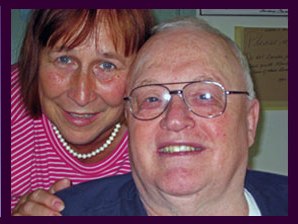Dr. Ethelle G. Lord
I am witnessing more and more the Alzheimer’s trinity in healthcare is like a battlefield. Management is pushing hard work with a skeleton crew with inadequate teamwork preparation and formation. This leaves the matter of dealing with adversity out on a limb most of the time and too often resulting in needless suffering for individuals living with Alzheimer’s. Their very safety and care, basic needs go unnoticed. Workers also suffer from extreme frustration, even exhaustion due to working with a skeleton crew.
Here are some helpful tips for healthcare businesses that see a reflection in the introductory paragraph above:
Tip #1: Hard work is not synonymous with extreme working conditions and lack of proper team support. Hard work is best sustained by offering proper rewards. Rewards are the single most effective way of retaining your employees. Each employee is rewarded differently. Here is an example of suitable rewards for someone with vision and working in your organization:
• Provide opportunity and support for risk-raking;
• Apprise him/her of long-term objectives and invite input;
• Provide a non-prejudicial and work-focused environment;
• Load with responsibility and allow autonomy over decisions affecting outcomes;
• Encourage and consider/help flesh out ideas – often prematurely dismissed;
• Properly credit ideas and achievements when due;
• Understand that directness is their leadership nature, not threat or disrespect;
• Provide them free workplace access (workaholics);
• Cooperative workplace, freedom to create/risk, fair compensation, financial bonuses, stock options, are meaningful rewards (S. Seich, 3 Sides of You)
Tip #2: Teamwork allows your organization to move mountains. Dr. R. M. Belbin posited that “A team is not a bunch of people with job titles, but a congregation of individuals, each of whom has a role which is understood by other members. Members of a team seek out certain roles and they perform most effectively in the ones that are most natural to them”. He also said that there is a perfect team formation. A teamwork culture is one that values cooperation over competition. Have you identified team roles in your workforce?
Tip #3: Dealing with adversity is a daily occurrence for any management team in the healthcare field. In disguise, adversity is a way to learn something new, change perspective, and become even more effective than before at what you do. “When everything seems to be going against you, remember that the airplane takes off against the wind, not with it” (Henry Ford).
The challenge is to create an Alzheimer’s Friendly Healthcare Workforce™ to provide better services in your organization. This is done by training productive work relationships, forming high-performing teams, raising self-awareness and personal effectiveness, build mutual trust and understanding, and welcome adversity because it will lead you to an opportunity to change the way you view others and solve problems. Together, hard work, teamwork, and adversity lead to success and a much higher quality of life for customers.
 About the author: Ethelle G. Lord, former president of the Maine Gerontological Society of Maine, runs Alzheimer’s coaching and consulting business RememberingforYou.com. Dr. Lord has a Doctorate of Management in Organizational Leadership from the University of Phoenix. Her 10-year experience with Alzheimer’s originated with her husband who was diagnosed with Alzheimer’s in Jan. 2003. In that time she noticed a need for a change in perspective with regards to providing individual and institutional care for individuals living with Alzheimer’s became urgent throughout the world. She is married to Maj. Larry S. Potter, USAF retired, and lives in Mapleton. Dr. Lord is available for presentations, training, and Alzheimer’s coaching/consulting.
About the author: Ethelle G. Lord, former president of the Maine Gerontological Society of Maine, runs Alzheimer’s coaching and consulting business RememberingforYou.com. Dr. Lord has a Doctorate of Management in Organizational Leadership from the University of Phoenix. Her 10-year experience with Alzheimer’s originated with her husband who was diagnosed with Alzheimer’s in Jan. 2003. In that time she noticed a need for a change in perspective with regards to providing individual and institutional care for individuals living with Alzheimer’s became urgent throughout the world. She is married to Maj. Larry S. Potter, USAF retired, and lives in Mapleton. Dr. Lord is available for presentations, training, and Alzheimer’s coaching/consulting.